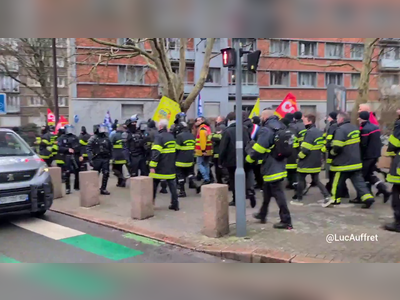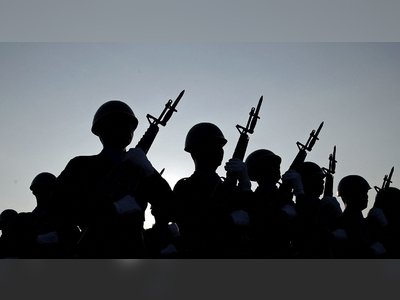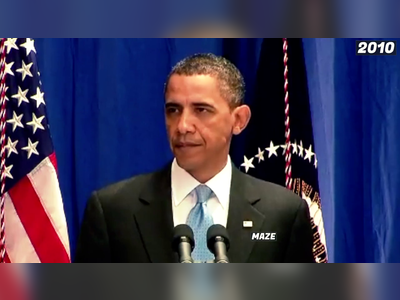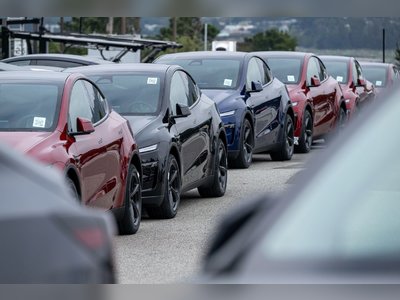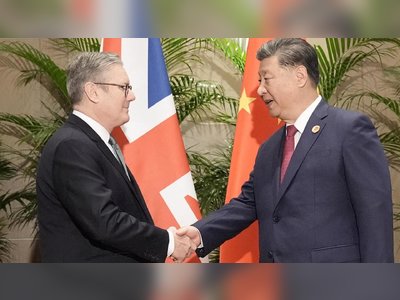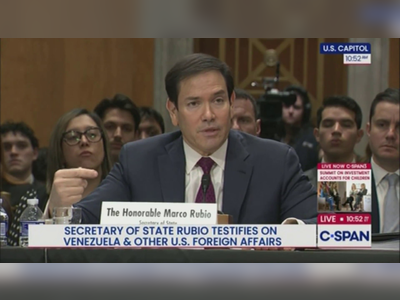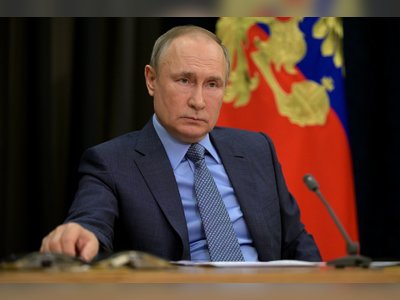0:00
0:00
EU Leaders Convene Key Summit on Defense in Response to Increasing Tensions
The EU's defense strategy encounters a divide, with France advocating for the development of European weapons, while other countries express concerns about jeopardizing relations with the U.S. in light of increasing geopolitical dangers.
Leaders of the European Union are convening in Brussels for a pivotal summit focused on the future of EU defense amid escalating tensions surrounding military expenditure and arms procurement.
This meeting, likened by some to 'open heart surgery,' seeks to refine the EU's defense strategy in light of increasing threats, particularly from Russia.
The gathering underscores a rift between France and several other EU countries, with Paris advocating for the allocation of European taxpayer funds to support domestic military systems.
France’s position has encountered pushback from nations such as Germany, Poland, and the Baltic states, who caution that sidelining U.S. arms manufacturers from EU defense funding could jeopardize relations with the United States, especially considering President Donald Trump’s transactional foreign policy approach.
Numerous countries are eager to quickly acquire military assets to strengthen their defenses against Russian aggression, with Poland investing billions in U.S. weapons and other NATO allies seeking rapid access to available off-the-shelf equipment.
The EU is currently deliberating a €1.5 billion defense industry initiative, with some nations advocating for a significant expansion to €100 billion by 2027, directing a sizable share toward armament purchases from NATO allies, including the U.S. Currently, over 60% of EU defense orders come from the U.S., a statistic that France and a few other countries aim to reduce by enhancing European defense capabilities.
Greek officials have allied with France in calling for an increase in EU-produced weapons, asserting that this will bolster Europe's strategic independence, especially if NATO's integrity is challenged in the future.
The summit will also tackle broader geopolitical matters, including Russia’s invasion of Ukraine and the EU’s growing need for defense responsibilities.
Despite the pressing nature of the discussions, doubts persist regarding the possibility of achieving significant progress, as the EU's diplomatic leadership strives to maintain cohesion within the Atlantic alliance while also establishing a path forward for defense expenditure.
The meeting will feature NATO Secretary-General Mark Rutte and U.K. Prime Minister Keir Starmer, representing the first attendance of a British leader at such a summit since Brexit.
EU Council President António Costa faces the challenge of steering through these intricate issues, with hopes for a unified EU defense strategy remaining uncertain.
This meeting, likened by some to 'open heart surgery,' seeks to refine the EU's defense strategy in light of increasing threats, particularly from Russia.
The gathering underscores a rift between France and several other EU countries, with Paris advocating for the allocation of European taxpayer funds to support domestic military systems.
France’s position has encountered pushback from nations such as Germany, Poland, and the Baltic states, who caution that sidelining U.S. arms manufacturers from EU defense funding could jeopardize relations with the United States, especially considering President Donald Trump’s transactional foreign policy approach.
Numerous countries are eager to quickly acquire military assets to strengthen their defenses against Russian aggression, with Poland investing billions in U.S. weapons and other NATO allies seeking rapid access to available off-the-shelf equipment.
The EU is currently deliberating a €1.5 billion defense industry initiative, with some nations advocating for a significant expansion to €100 billion by 2027, directing a sizable share toward armament purchases from NATO allies, including the U.S. Currently, over 60% of EU defense orders come from the U.S., a statistic that France and a few other countries aim to reduce by enhancing European defense capabilities.
Greek officials have allied with France in calling for an increase in EU-produced weapons, asserting that this will bolster Europe's strategic independence, especially if NATO's integrity is challenged in the future.
The summit will also tackle broader geopolitical matters, including Russia’s invasion of Ukraine and the EU’s growing need for defense responsibilities.
Despite the pressing nature of the discussions, doubts persist regarding the possibility of achieving significant progress, as the EU's diplomatic leadership strives to maintain cohesion within the Atlantic alliance while also establishing a path forward for defense expenditure.
The meeting will feature NATO Secretary-General Mark Rutte and U.K. Prime Minister Keir Starmer, representing the first attendance of a British leader at such a summit since Brexit.
EU Council President António Costa faces the challenge of steering through these intricate issues, with hopes for a unified EU defense strategy remaining uncertain.
AI Disclaimer: An advanced artificial intelligence (AI) system generated the content of this page on its own. This innovative technology conducts extensive research from a variety of reliable sources, performs rigorous fact-checking and verification, cleans up and balances biased or manipulated content, and presents a minimal factual summary that is just enough yet essential for you to function as an informed and educated citizen. Please keep in mind, however, that this system is an evolving technology, and as a result, the article may contain accidental inaccuracies or errors. We urge you to help us improve our site by reporting any inaccuracies you find using the "Contact Us" link at the bottom of this page. Your helpful feedback helps us improve our system and deliver more precise content. When you find an article of interest here, please look for the full and extensive coverage of this topic in traditional news sources, as they are written by professional journalists that we try to support, not replace. We appreciate your understanding and assistance.
